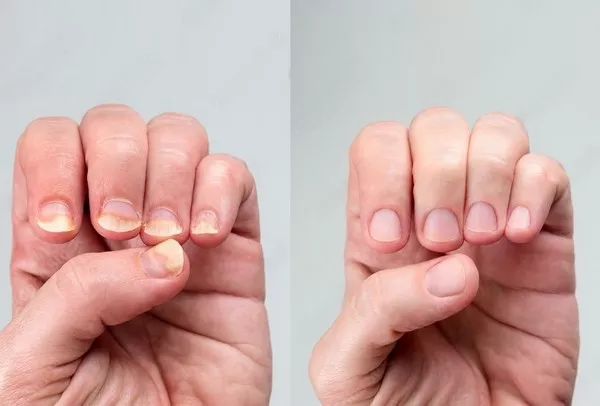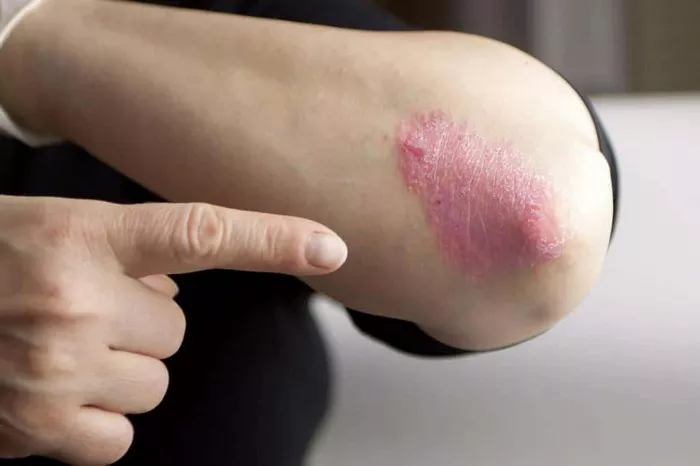Psoriatic arthritis (PsA) is a complex and often misunderstood condition. As a type of inflammatory arthritis associated with the chronic skin condition psoriasis, PsA affects both the skin and joints. Many individuals wonder whether psoriatic arthritis is a chronic disease and what this means for their long-term health. This article aims to provide a comprehensive understanding of psoriatic arthritis, exploring its nature, symptoms, and management strategies.
Understanding Psoriatic Arthritis
What is Psoriatic Arthritis?
Psoriatic arthritis is a type of inflammatory arthritis that occurs in some individuals with psoriasis, a chronic skin condition characterized by red, scaly patches. PsA involves inflammation of the joints and the areas where tendons and ligaments attach to bones (entheses). It can affect any joint in the body, leading to pain, swelling, and stiffness.
The Chronic Nature of Psoriatic Arthritis
To address the central question: Yes, psoriatic arthritis is a chronic disease. Chronic diseases are long-lasting conditions that can be controlled but not cured. Psoriatic arthritis fits this definition as it persists over a lifetime, requiring ongoing management to control symptoms and prevent joint damage.
Types of Psoriatic Arthritis
Psoriatic arthritis can present in several different patterns, each affecting the body in unique ways:
- Symmetric Psoriatic Arthritis: Affects the same joints on both sides of the body and resembles rheumatoid arthritis.
- Asymmetric Psoriatic Arthritis: Affects joints on one side of the body or different joints on each side.
- Distal Interphalangeal Predominant (DIP): Primarily affects the small joints of the fingers and toes.
- Spondylitis: Involves inflammation of the spine and sacroiliac joints, leading to stiffness and pain in the back and neck.
- Arthritis Mutilans: A severe, deforming, and destructive form of arthritis that primarily affects the small joints of the hands and feet.
Symptoms of Psoriatic Arthritis
Joint Symptoms
Psoriatic arthritis can cause a wide range of joint-related symptoms, including:
- Pain and Swelling: Joints may become painful, swollen, and tender to the touch.
- Stiffness: Joint stiffness, particularly in the morning or after periods of inactivity.
- Warmth: Inflammation can cause the affected joints to feel warm.
- Reduced Range of Motion: Joint damage and inflammation can limit the movement of affected joints.
Skin and Nail Symptoms
As PsA is associated with psoriasis, individuals may also experience skin and nail symptoms:
- Psoriasis Patches: Red, scaly patches of skin, commonly found on the scalp, elbows, and knees.
- Nail Changes: Pitting, discoloration, and separation of the nail from the nail bed (onycholysis).
Enthesitis and Dactylitis
Psoriatic arthritis can also affect areas where tendons and ligaments attach to bones (entheses) and cause dactylitis:
- Enthesitis: Inflammation of the entheses, often causing pain and tenderness in the heels, bottoms of the feet, and elbows.
- Dactylitis: Swelling of an entire finger or toe, often referred to as “sausage digits.”
Systemic Symptoms
In addition to joint and skin symptoms, PsA can cause systemic symptoms that affect overall health:
- Fatigue: Persistent tiredness and lack of energy.
- Eye Inflammation: Conditions such as uveitis, which can cause eye pain, redness, and blurred vision.
- Cardiovascular Disease: Increased risk of heart disease and other cardiovascular conditions.
- Gastrointestinal Issues: Inflammation of the digestive tract, sometimes leading to conditions like Crohn’s disease.
SEE ALSO: Can I Marry a Person with Psoriasis?
Causes and Risk Factors
Genetic Factors
Genetics play a significant role in the development of psoriatic arthritis:
- Family History: Individuals with a family history of psoriasis or PsA are at higher risk.
- Genetic Markers: Certain genetic markers, such as HLA-B27, are associated with an increased risk of developing PsA.
Immune System Dysfunction
Psoriatic arthritis is an autoimmune disease, meaning the immune system mistakenly attacks healthy tissues:
- Autoimmune Response: The immune system’s attack on joint tissues and skin cells leads to inflammation and the symptoms of PsA.
Environmental Triggers
Certain environmental factors can trigger or exacerbate psoriatic arthritis:
- Infections: Bacterial or viral infections may trigger PsA in susceptible individuals.
- Injury: Physical trauma or injury to a joint can trigger an inflammatory response.
- Stress: Emotional or physical stress can exacerbate symptoms of PsA.
Lifestyle Factors
Certain lifestyle factors can influence the risk and severity of psoriatic arthritis:
- Obesity: Excess weight can put additional stress on joints and exacerbate inflammation.
- Smoking: Smoking is associated with an increased risk of PsA and can worsen symptoms.
- Diet: A diet high in inflammatory foods, such as processed foods and sugary drinks, can contribute to inflammation.
Diagnosis of Psoriatic Arthritis
Medical History and Physical Examination
Diagnosis of psoriatic arthritis involves a thorough medical history and physical examination:
- Medical History: The healthcare provider will ask about symptoms, family history, and any history of psoriasis.
- Physical Examination: The examination will include an assessment of joints for signs of inflammation, tenderness, and swelling, as well as an examination of the skin and nails for psoriasis-related changes.
Laboratory Tests
Several laboratory tests can help support the diagnosis of psoriatic arthritis:
- Blood Tests: Tests for markers of inflammation (such as ESR and CRP) and antibodies (such as rheumatoid factor) can help differentiate PsA from other types of arthritis.
- HLA-B27: Testing for the HLA-B27 genetic marker can provide additional diagnostic information.
Imaging Studies
Imaging studies are useful for assessing joint damage and inflammation:
- X-rays: Can reveal joint damage, erosion, and other characteristic changes of PsA.
- MRI and Ultrasound: These imaging modalities provide detailed views of joint tissues, tendons, and ligaments and can detect early signs of inflammation and damage.
Management of Psoriatic Arthritis
Medical Treatments
Several medical treatments are available to manage psoriatic arthritis and reduce symptoms:
- Nonsteroidal Anti-Inflammatory Drugs (NSAIDs): These medications help reduce pain and inflammation. Examples include ibuprofen and naproxen.
- Disease-Modifying Antirheumatic Drugs (DMARDs): DMARDs, such as methotrexate and sulfasalazine, help slow the progression of PsA and reduce joint damage.
- Biologic Agents: Biologic drugs, such as TNF inhibitors (e.g., etanercept, adalimumab) and IL-17 inhibitors (e.g., secukinumab), target specific components of the immune system to reduce inflammation and prevent joint damage.
- Corticosteroids: Oral or injected corticosteroids can help manage severe inflammation and pain during flare-ups.
Lifestyle Modifications
Certain lifestyle modifications can help manage symptoms and improve quality of life for individuals with psoriatic arthritis:
- Exercise: Regular physical activity helps maintain joint flexibility, reduce stiffness, and improve overall fitness. Low-impact exercises, such as swimming, walking, and yoga, are often recommended.
- Diet: A balanced diet rich in anti-inflammatory foods, such as fruits, vegetables, whole grains, and omega-3 fatty acids, can help reduce inflammation. Avoiding processed foods, sugary drinks, and excessive alcohol is also beneficial.
- Weight Management: Maintaining a healthy weight reduces stress on joints and can help improve symptoms.
- Stress Management: Practices such as mindfulness, meditation, and deep breathing exercises can help reduce stress and improve overall well-being.
Physical and Occupational Therapy
Physical and occupational therapy can provide additional support for managing psoriatic arthritis:
- Physical Therapy: Physical therapists can design individualized exercise programs to improve joint function, strength, and flexibility.
- Occupational Therapy: Occupational therapists can offer strategies to protect joints during daily activities and recommend assistive devices to enhance mobility and independence.
Alternative and Complementary Therapies
Some individuals with psoriatic arthritis find relief through alternative and complementary therapies:
- Acupuncture: Acupuncture may help reduce pain and improve joint function for some individuals.
- Massage Therapy: Therapeutic massage can help reduce muscle tension and improve circulation.
- Herbal Supplements: Certain herbal supplements, such as turmeric and fish oil, have anti-inflammatory properties and may provide additional benefits. However, it is important to consult with a healthcare provider before starting any new supplements.
Living with Psoriatic Arthritis
Coping Strategies
Living with a chronic disease like psoriatic arthritis requires coping strategies to manage physical and emotional challenges:
- Education: Learning about PsA and staying informed about the latest treatments and management strategies can empower individuals to take control of their condition.
- Support Networks: Connecting with support groups, either in person or online, can provide valuable emotional support and a sense of community.
- Communication: Open communication with healthcare providers, family, and friends is essential for managing symptoms and maintaining a high quality of life.
Monitoring and Follow-Up
Regular monitoring and follow-up with healthcare providers are crucial for managing psoriatic arthritis effectively:
- Regular Check-Ups: Scheduled visits with a rheumatologist or dermatologist can help monitor disease progression and adjust treatment plans as needed.
- Symptom Tracking: Keeping a symptom diary can help identify triggers and patterns, allowing for better management of flare-ups.
- Medication Adherence: Following prescribed treatment plans and taking medications as directed are essential for controlling symptoms and preventing joint damage.
Conclusion
Psoriatic arthritis is indeed a chronic disease that requires ongoing management to control symptoms and prevent joint damage. While there is no cure for PsA, a combination of medical treatments, lifestyle modifications, physical therapy, and alternative therapies can help individuals manage their condition and maintain a high quality of life. By staying informed, seeking support, and working closely with healthcare providers, individuals with psoriatic arthritis can effectively navigate the challenges of this chronic disease and lead fulfilling lives.
Related Topics:



























